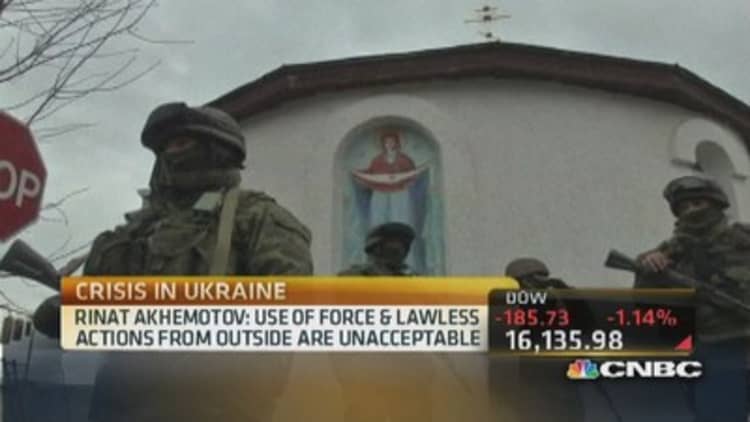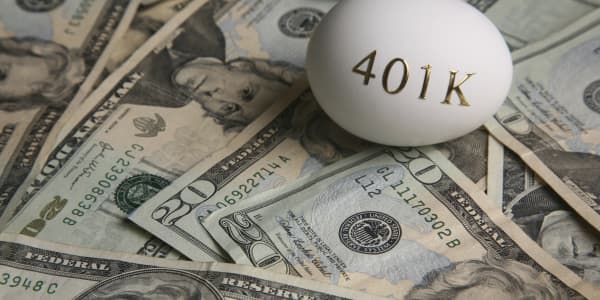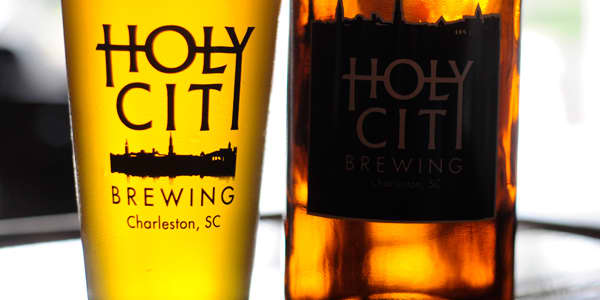Being an entrepreneur in America—to create something from nothing, to build a business, hire people, solve customer problems and create wealth—is considered an honorable profession (by most folks).
In Ukraine, though, my ancestral homeland—my mother's family came from Kharkiv and Odessa, and I can hold a passable conversation in Ukrainian—I've met many men and women among the population of 46 million people who don't have much respect for entrepreneurism. You say you're an entrepreneur or a businessman and you might as well say you're stealing. OK, I'm exaggerating, but in the least, the response is often negative, the exact opposite of the response here in the U.S.
I'm intimately familiar with the horrors of Stalin and the country's history under Communism. The events of the past few months, and especially the last week, have thrown Ukraine onto the world's stage again. While I'm very excited at the progress that has been made in the last few days, we're a long way away from a peaceful situation, and apart from the saber-rattling, there are longer-term critical advances to be made related to Ukrainian capital formation.
There is a group of Ukrainians working to change the perception of entrepreneurism held by most of the population—pioneers out to restore honor to business. They aim to demonstrate that business can operate professionally, without bribes, using Western-style governance methods for the benefit of both businessmen and society at large. They recognize that healthy small business is the foundation upon which economic progress, and a stable civil society, can be built. These people are … priests.
(Read more: Why Crimea matters)
Yes, priests, Ukrainian Catholic priests, to be exact. How are they doing this? Through a seminary that was once banned by the Soviets. Yeah, I know—you can't make this stuff up.
Ukrainian Catholic University, located in the western Ukrainian city of L'viv, is the only Catholic university on the territory of the former Soviet Union. UCU traces its history to 1929, when its predecessor was founded as a seminary for Eastern-Rite Catholic priests. After being suppressed in Ukraine during the Communist era (it continued to exist in Rome), it was resurrected in the late 1980s to educate new priests for the newly-liberated church in Ukraine.

But this time, UCU set its sights beyond theology. It aspired to be a full-fledged university, worthy of inclusion among the ranks of the great Catholic universities of the world. More importantly, it wanted to play a key role in building Ukrainian civil society.
(Read more: Market opportunities amid the Ukrainian military crisis)
Priests wondered how to do that, and so they decided: Start a school of business. Not a law school or medical school, but a school of business. (They started a school of journalism, too—not hard to see the need there, either.) UCU's L'viv Business School boasts a certificate program in nonprofit management and courses in business ethics. That may be standard stuff on this side of the pond, but over there it's groundbreaking. Tuck or Wharton, it is not. But its effect on Ukrainian society may be just as significant.
Throughout the recent conflict, UCU has been open (as has most of Ukraine), and the people's revolution continues peacefully. Despite Russian intrusions to the East, the country is strong and the university continues to grow.
Luckily, friends of mine in Ukraine and Ukrainian-Americans are sponsoring students at the school to help fund ethical development of business—"clean," to use their terms. And if this group of visionary clerics has its way, pretty soon I'll be able to claim my true profession as an entrepreneur and a businessman in Ukraine as well.
—By Clint Greenleaf, founder and chairman, Greenleaf Book Group and a member of the CNBC-YPO Chief Executive Network
CNBC and YPO (Young Presidents' Organization) have an exclusive editorial partnership. It consists of regional Chief Executive Networks in the Americas, EMEA and Asia-Pacific. These Chief Executive Networks are made up of a sample of YPO's unrivaled global network of 20,000 top executives from 120 countries who are on the front lines of the economy. The opinions of Chief Executive Network members are solely their own and do not reflect the opinions of YPO as a whole or CNBC.




